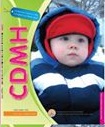The Relationship of Intelligence Quotient Scores between the WISC-III-Thai Version and Leiter-R in Children with Learning Disabilities
Main Article Content
Abstract
The purpose of this study was to examine the relationship between the intelligence quotient score of the Wechsler Intelligence Scale for Children-Third Edition; Thai version (WISC-III-Thai version) and the Leiter International Performance Scale-Revised (LeiterR) and to compare the difference of the scores in both tests. Further comparison was
made between the full scale IQ (FSIQ) and the verbal component subtests; Vocabulary and Digit Span. The subjects were 30 children who had been diagnosed with learning disabilities by a physician according to DSM-IV diagnostic criteria. The participants received service from February to May 2010 at HRH Princess Maha Chakri Sirindhorn Medical Center. A sample of children with learning disabilities as determined by the WISC-III-Thai version and Leiter-R. The statistics used in this study are the percentage, average, standard deviation, Pearson Product Moment Correlation Coefficients, and Pair Sample t-test. The results of this study were concluded as follows: (1) There was a statistically significant FSIQ score relationship in both tests at 0.01 (r=.527 and .502 respectively). (2) There was no significant difference in the mean score between both tests. (3) There was no significant difference in mean FSIQ score between vocabulary and digit span subtests in the verbal component of WISC-III-Thai version. (4) Corresponding percentages between the FSIQ score from the vocabulary and digit span subtests of WISC-III Thai version compared with Leiter-R test was 93.33 % and 86.67%, respectively. This current study showed that the Leiter-R test is a valid clinical tool that can be used to evaluate the level of intelligence, and diagnostically screen children for learning disabilities. This can lead to appropriate recommendations for interventions of modification or accommodation in their educational plan as well as therapeutic remediation programs as treatment modalities.
Article Details
The authors retain copyright and permit the journal the copyright of first publication
Articles, once having passed the review process and accepted for publication in the CDMH Journal, are copyrighted under the CDMH Journal, Department of Mental Health, Ministry of Public Health. Please be aware distribution of CDMH Journal content for commercial purposes without permission is expressly prohibited. However, distribution with intent to educate, advocate, or spread awareness within the general public and research communities is permitted and encouraged with the understanding that the CDMH Journal Editorial Board do not hold jurisdiction or liability for any accompanying comments, text, or information from third parties, either in favor for or against the original article’s assertions, conclusions, methodology, or content.


